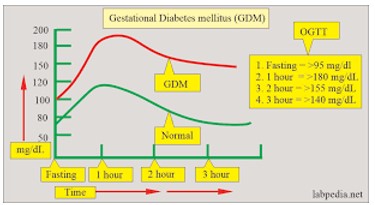When the parents of a 6-year-old boy with a brain tumor are told that his condition is terminal, the mother shouts at the father, "This is your fault! It never would have happened if we had sought treatment sooner!" Which intervention is best for the nurse to implement?
Refer the parents to the chaplain to provide grief counseling.
Tell the parents that blaming each other will not change the situation
Assure the parents that a terminal diagnosis is inevitable.
Explain to the parents that anger is a common response to grief.
The Correct Answer is D
The correct answer is choice d. Explain to the parents that anger is a common response to grief.
Choice A rationale:
Referring the parents to the chaplain for grief counseling can be beneficial, but it may not address the immediate emotional outburst and the need for understanding their feelings.
Choice B rationale:
Telling the parents that blaming each other will not change the situation might be true, but it can come across as dismissive and may not provide the emotional support they need at that moment.
Choice C rationale:
Assuring the parents that a terminal diagnosis is inevitable does not address their current emotional state and may seem insensitive to their grief and anger.
Choice D rationale:
Explaining to the parents that anger is a common response to grief helps them understand their emotions and provides immediate emotional support, making it the best intervention in this situation.
Nursing Test Bank
Naxlex Comprehensive Predictor Exams
Related Questions
Correct Answer is C
Explanation
Delegation involves assigning tasks to individuals who have the appropriate skills and competence to perform them safely and effectively. Inserting urinary catheters for uncomplicated clients is a task that can be delegated to a practical nurse. It is a common procedure within the scope of practice for a practical nurse, and it does not require the level of assessment and critical thinking involved in evaluating and updating plans of care or receiving a postoperative client and conducting an assessment.
Verifying the readiness of clients for discharge typically involves comprehensive assessments, coordination with other healthcare professionals, and decision-making regarding the appropriateness of discharge. This task is generally performed by registered nurses (RNs) or other members of the healthcare team with advanced training.
Evaluating and updating plans of care for clients is a responsibility that falls within the scope of practice of registered nurses. It requires a higher level of assessment, clinical judgment, and decision-making, which are typically beyond the scope of practice of a practical nurse.
Receiving a postoperative client and conducting the assessment involves comprehensive assessment skills and critical thinking, which are typically within the scope of practice of a registered nurse or an advanced practice nurse.
Correct Answer is ["A","B","C"]
Explanation
Her fasting 1-hour glucose screening level, which was done 1 week prior, is 164 mg/dl. (9.1 mmol/L) Her 3-hour oral glucose tolerance test results reveal a fasting blood sugar of 168 (9.3 mmol/L) and a two-hour postprandial of 220 mg/dL (12.2 mmol/L).
The client has gestational diabetes mellitus (GDM), which is a condition that affects some pregnant women and causes high blood sugar levels. This is bad during pregnancy because it can increase the risk of complications for both the mother and the baby, such as preeclampsia, macrosomia, birth trauma, neonatal hypoglycemia, and congenital anomalies. The client needs to follow a diet and exercise plan to control her blood sugar levels and prevent further complications. She may also need to take insulin injections or oral medications if diet and exercise are not enough. The client should monitor her blood sugar levels regularly and report any abnormal results to her health care provider. The client should also have regular prenatal visits and ultrasounds to check the growth and development of the baby.

Whether you are a student looking to ace your exams or a practicing nurse seeking to enhance your expertise , our nursing education contents will empower you with the confidence and competence to make a difference in the lives of patients and become a respected leader in the healthcare field.
Visit Naxlex, invest in your future and unlock endless possibilities with our unparalleled nursing education contents today
Report Wrong Answer on the Current Question
Do you disagree with the answer? If yes, what is your expected answer? Explain.
Kindly be descriptive with the issue you are facing.
